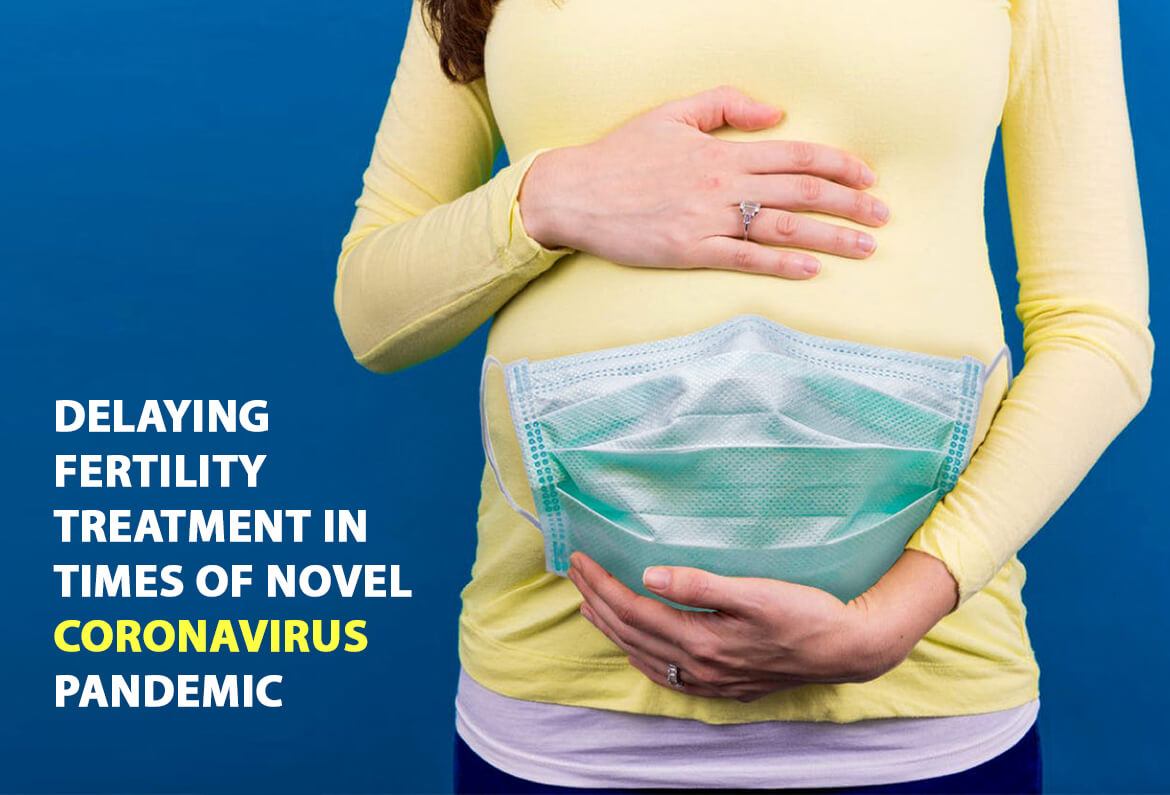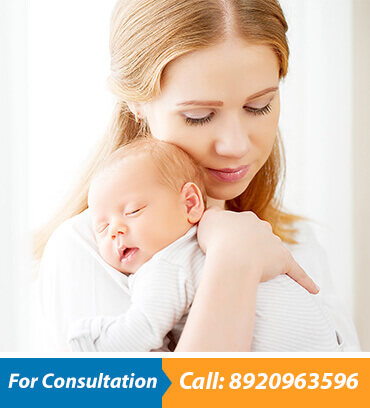Delaying Fertility Treatment in Times of Novel Coronavirus Pandemic
Couples undergoing infertility treatment have already waited long before they could finally decide to go for assisted reproductive techniques to help them get pregnant. Unprecedented times like novel Coronavirus Pandemic have caused a suspension on all non-emergent medical services including Intrauterine Inseminations and In Vitro Fertilization asthese require multiple visits to a health care facility, putting both mother and baby at risk. This has not only shattered the hopes of many aspiring couples but has also made them more apprehensive about the effect of this delay on their chances for conception through IVF and the Coronavirus effects on pregnant women the baby.
Delaying fertility treatment may help in limiting the exposure and probability of having Coronavirus and pregnancy.
Is postponement of IVF procedure absolutely necessary?
Although the government body has not issued guidelines specific to IVF treatment in times of pandemic, a small delay of the treatment is best for the couple and baby. This complex procedure involves multiple hospital visits, blood tests, ultrasounds, daily injections, general anaesthesia for egg retrieval etc. All these steps open many opportunities for contacting infection. We must know that Coronavirus effects on pregnant women could be more as they are immunosuppressed, making them more vulnerable to catching infection. The impact of this COVID 19 infection on a baby’s development is yet unknown due to limited data.
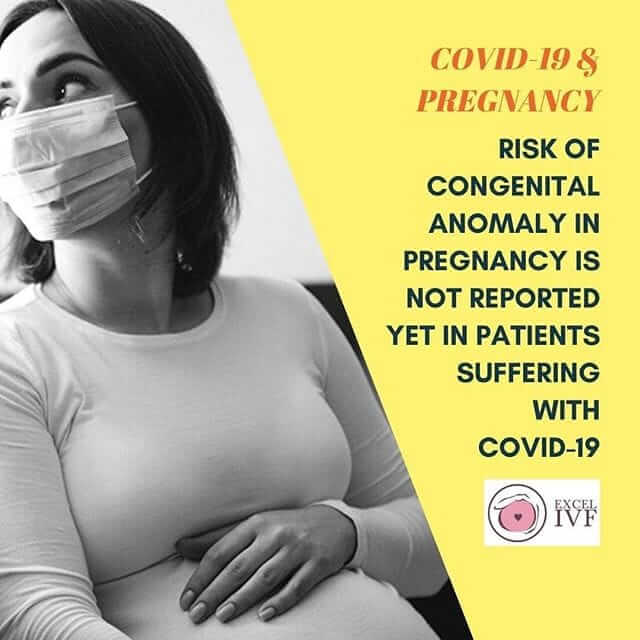
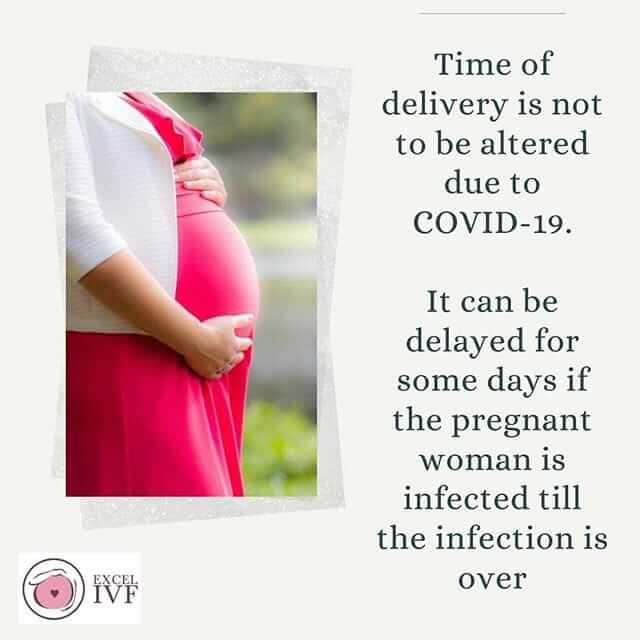
What is the effect of this delay on Egg reserve?
Women with advancing age, with poor egg reserve, and who have had few eggs retrieved in previous cycles, are worried about the deterioration in egg number that can happen due to postponement of IVF treatment. The rate of fall of egg reserve does escalate in the late thirties but its effect on IVF cycle outcome when treatment is delayed by a just a couple of months has not known to be significant with certainty. Many times delaying the IVF cycle is desirable for pre-medications to improve the egg retrieved in the IVF cycle. This time thus can be utilised for such pre IVF treatments. The proper utilisation of available time is one significant aspect of Coronavirus and pregnancy.
What is the effect on Low sperm count?
There is always an opportunity to freeze a semen sample if the sperm count is low. While utilising the cryopreservation facilities, the cause of low sperm count can be addressed and treated while utilising the delaying period. Knowing the fact that a sperm cycle is of three months, treatment with antioxidants, gonadotropins- hormonal injections, antibiotics, etc., should be started when it is necessary to optimise the IVF outcomes. Following this, the actual procedure is to be done after a few months in a safer environment.
When shouldn’t fertility treatment be delayed?
Any person who has been diagnosed with cancer and wants to opt for fertility preservation should seek advice. For a woman with low egg reserve and a man with low sperm, it is for the fertility expert to take a call based on individual cases.
How long can embryos be stored if not transferred?
The stored gametes- egg/ sperm and embryos are safe, and they can be used even after many years. This small delay shall not affect them.
How long shall you have to wait?
The resumption of all new IVF stimulation cycles shall probably start when the numbers of new cases are significantly low for more than 14 days in a specific state. This also must be carried in a facility that is fully equipped to provide patient care in a manner that limits the risk to staff, patients, health care providers.
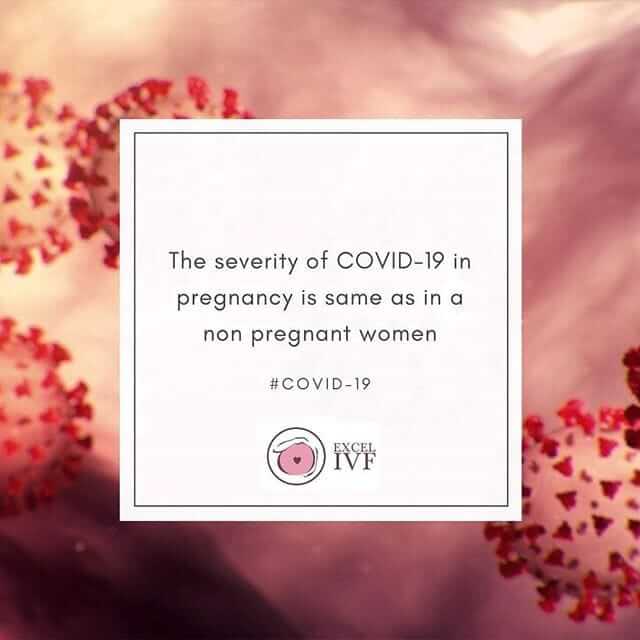
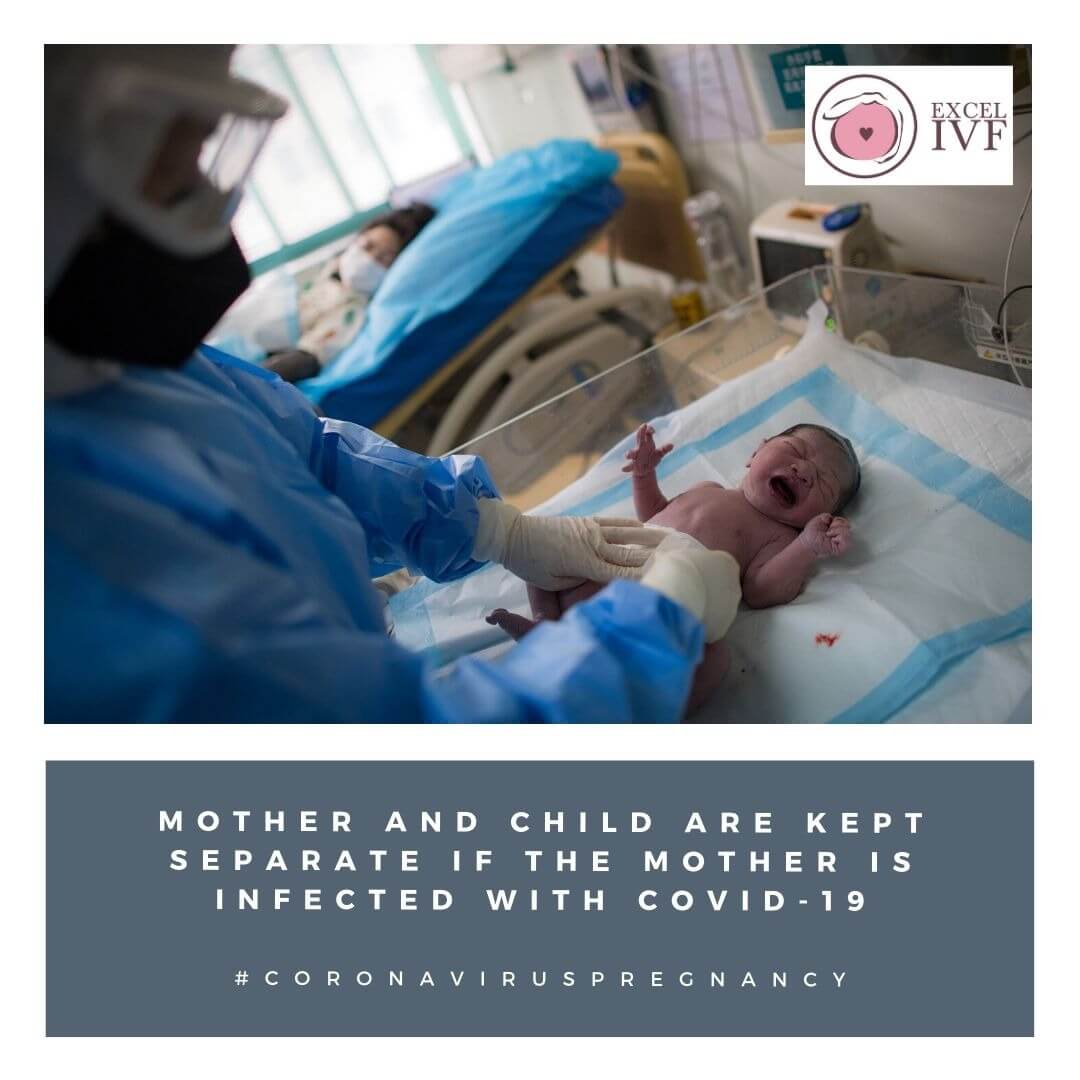
How to utilise this time to improve IVF success and eliminate the possibility of Coronavirus effects on pregnant women?
- Attain a healthy BMI: Work out and burn calories to reduce weight, obese women have a lower success rate in IVF and higher chances of miscarriage. Obese men are likely to have low sperm count.
- Eat Right: A rainbow diet with specified calorie count ensuring adequate intake of essential vitamins and minerals.
- Improve your sexual life: Inadequate frequency of sexual activity has also been a significant cause of infertility.
- Do not indulge in smoking, alcohol or drug abuse.
- De-stress yourself with meditation, pursuing your hobbies etc.
- Pre-IVF medications: If your doctor has advised any per IVF tablets, take them regularly.
This short yet essential delay in IVF treatment should not be of any significant consequence in the eventual IVF outcome. We can say that Coronavirus and pregnancy are not the two safest companions to stay at the same time. Thus, for now, minimising the risk of getting infected and staying safe should be everyone’s priority.

